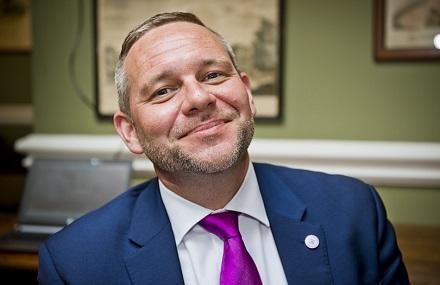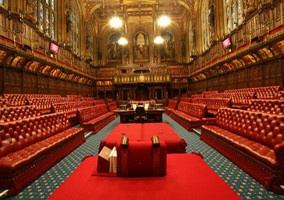The charity sector’s relationship with government “has gone horribly wrong”, the chief executive of Social Enterprise UK told charity leaders yesterday.
Speaking in London at the annual conference of charity leaders body Acevo, Peter Holbrook said that government needed to make a number of changes to reform that relationship, but also warned that the sector itself had to take the blame for some of its reputational problems.
Holbrook told delegates that government had made a series of promises in opposition to empower charities, in a 2008 document entitled A stronger society: Voluntary action in the 21st century.
In that document David Cameron, then the leader of the opposition, wrote:
“Our aim is not to change the voluntary sector, which is more than capable of changing itself as it sees fit. Rather, our aim is to change government: from being an object that gets in the way of civil society to being a force that gets behind civil society, open to, and supportive of, the energy and initiative of a free and civilised nation.”
Holbrook said this vision had not been met.
“I think it’s fair to say that relationship with government has been more strained in recent years,” he said.
He said government promises had gone unmet, including “a powerful Office for Civil Society”, a select committee on civil society and a new, more powerful version of the Compact – the agreement governing good practice in government’s relationship with charity.
The Compact promises long-term funding, freedom of voice for civil society, and consideration for the needs of charity when drafting new policy. While it is still official government policy that the Compact should be followed, it has little force.
Holbrook questioned whether it was possible for the sector to feel trusted by government, and asked why so few promises had been met.
“This is a consequence of cock-up rather than conspiracy,” he said. “We have to find an opportunity to restore this relationship because just about everyone would recognise that this has gone horribly wrong.
“There is part of the current government that wants charities to just be quiet and deliver services. There is another group that feel we should just stick to our knitting.
“Only when we consider our current range of influence within the context of events in the United States is it possible to draw any comfort at all.”
Sector also to blame
Holbrook said the sector had “some honesty to undertake” about its own role in its reduced reputation.
He said charities had not communicated clearly enough with the public and with government about the reality of how they operated.
“We have been complicit in allowing the public and our other stakeholders to continue in an unreconstructed view of what we do,” he said. “The sector is far more diverse than we allow our stakeholders to understand.”
He said charities were “economic units” which had paid staff, and that the voluntary and community sector was “on the periphery” in financial terms. And he said that social enterprises were starting up at three times the rate of traditional charities and were increasingly a large part of the solution.
“There’s a growing view that charities have failed to tackle some of the big challenges we’ve faced,” he said. “Charity alone can’t be our solution to social problems.”
Challenges to charities and government
Holbrook outlined five challenges for the sector
- Create better collaboration between infrastructure organisations.
- Increase transparency in reporting.
- Make better use of the evidence of the impact of what we do.
- Be much more honest with the public about what happens within charities.
- Invest more in an infrastructure to support front line services.
And four for government:
- Implement the recommendation of the 2012 Hodgson review of charity regulation in full
- Enforce the Compact
- End uncertainty around anti-advocacy
- Reform the governance of the Charity Commission
Related articles












